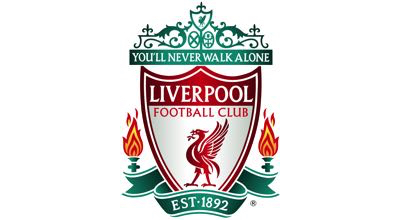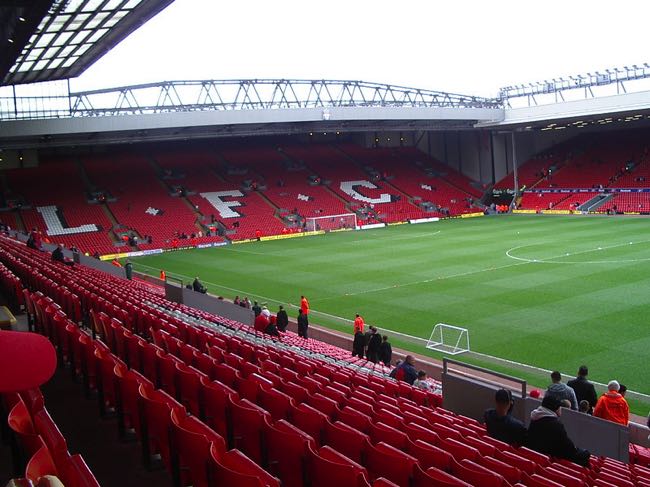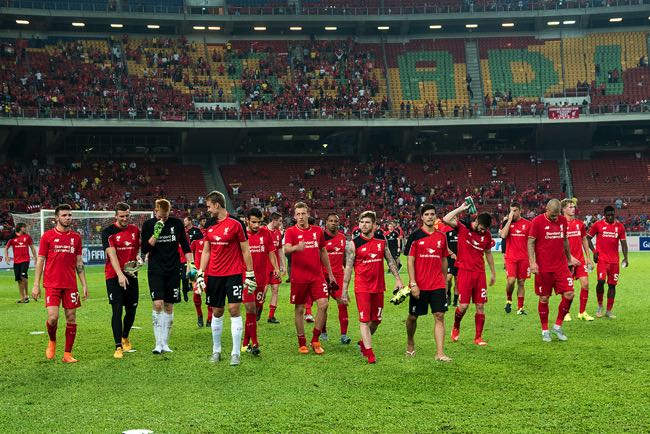 At the time of writing, only two sides have won the Champions League (including its forerunner, the European Cup) more times than Liverpool: Real Madrid and AC Milan. But Liverpool’s six triumphs in Europe’s top club competition means they are level-pegging with Bayern Munich, one ahead of Barcelona and have gone all the way twice as many times as their great rivals, Manchester United!
At the time of writing, only two sides have won the Champions League (including its forerunner, the European Cup) more times than Liverpool: Real Madrid and AC Milan. But Liverpool’s six triumphs in Europe’s top club competition means they are level-pegging with Bayern Munich, one ahead of Barcelona and have gone all the way twice as many times as their great rivals, Manchester United!
In this article, we’ll run through the details of Liverpool’s six victories, four of which came when the competition was known as the European Cup and the other two once it had been rebranded as the Champions League. We’ll also give brief details of the four finals Liverpool have lost and some of the biggest upsets the Reds have suffered in the tournament over the years.
When Did Liverpool Last Win the Champions League?
Liverpool last won the Champions League in 2019 when they beat fellow Premier League side Tottenham Hotspur 2-0 in the final in Madrid. An early penalty from Mohamed Salah and a late strike from Divock Origi gave Jürgen Klopp his first trophy as Liverpool boss.
Champions League Finals
Here we’ll run through the scores of Liverpool’s 10 Champions League and European Cup finals.
| Year | Opponent | Result | Score |
|---|---|---|---|
| 2022 | Real Madrid | Lost | 1-0 |
| 2019 | Tottenham Hotspur | Won | 2-0 |
| 2018 | Real Madrid | Lost | 3-1 |
| 2007 | AC Milan | Lost | 2-1 |
| 2005 | AC Milan | Won | 3-3 after extra time (3-2 on penalties) |
| 1985 | Juventus | Lost | 1-0 |
| 1984 | Roma | Won | 1-1 after extra time (4-2 on penalties) |
| 1981 | Real Madrid | Won | 1-0 |
| 1978 | Club Brugge | Won | 1-0 |
| 1977 | Borussia Mönchengladbach | Won | 3-1 |
Stage of Elimination
Since the inaugural European Cup took place in the 1955/56 season, Liverpool have competed in the tournament (under that guise or as the Champions League) on 26 occasions. They first played in the tournament in the 1964/65 campaign (when they made it to the semi-final stage where they lost to Inter Milan). Here we outline how often the Reds have been eliminated at the various stages of the tournament (and indeed how often they’ve gone all the way).
| Stage | Number of Times | Percentage |
|---|---|---|
| Won | 6 | 23% |
| Final | 4 | 15% |
| Semi Final | 2 | 8% |
| Quarter Final | 5 | 19% |
| Round of 16 | 2 | 8% |
| 2nd Round | 2 | 8% |
| 1st Round | 2 | 8% |
| Group Stage | 3 | 12% |
The information provided in the table above is correct ahead of the 2022/23 Champions League. Percentages are based on the total of European Cups/Champions Leagues that Liverpool qualified for and do not equal 100% due to rounding to the nearest percentage point.
Times Liverpool Won the Champions League

Anfield Stadium (blogdroed / Flickr.com)
As mentioned, Liverpool’s sixth and most recent Champions League (or European Cup) success came at the end of the 2018/19 season. Here we’ll go into a bit more detail about that victory in Madrid and we’ll outline how they won their five other European titles too.
2019: Reds Get Better of Spurs in Madrid
As mentioned above, Liverpool’s most recent Champions League victory came in 2019 when they beat Mauricio Pochettino’s Tottenham Hotspur 2-0. Although the scoreline suggests a relatively comfortable victory for the Reds, it was actually Spurs who had the better of things, enjoying 61% of the possession and producing more shots (16 to Liverpool’s 14) and more shots on target (eight to just three from Liverpool) than their opponents. Of course there’s only one statistic that really counts in a football match, and Liverpool have the better of that one: 2-0.
Liverpool’s victory made amends for the disappointment of losing to Real Madrid in the final a year earlier. And they certainly meant business in this season’s tournament. They had a tough group that included Paris Saint-Germain and Napoli, and though Klopp’s men only finished second in the group (behind PSG) they turned on the style in the knockout stage where they got the better of Bayern Munich, Porto and Barcelona.
In the final, Liverpool could hardly have wished for a better start when they were awarded a penalty for handball after just 24 seconds (Moussa Sissoko was the culprit). Mohamed Salah duly slotted the spot-kick home and then the Reds appeared relatively happy to sit back and soak up the pressure. Spurs had their chances to get back into the game and had it not been for a very fine performance from Liverpool keeper Alisson, the north Londoners might well have become European champions for the first time. As it was, Belgian substitute Divock Origi scored late on to make sure of things for the Reds, earning them their sixth European title and Klopp his first trophy as Liverpool manager. Not a bad one to start with either!
2005: The Miracle of Istanbul
Sometimes Champions League finals prove to be a massive anti-climax (we’re looking at you, 2022!). But the 2005 final between AC Milan and Liverpool proved to be one of the great finals of all time, in any tournament. Played at the Atatürk Olympic Stadium in Istanbul in front of 69,000 fans, Rafael Benitez was in the Liverpool dugout while experienced and skilled Italian coach Carlo Ancelotti was looking to guide his side to their second European title under his tenure.
The Milan side had some true worldbeaters amongst their ranks including Hernan Crespo (while he was still good), Clarence Seedorf, Kaká and Andriy Shevchenko, alongside the rather imposing Italian quartet of Alessandro Nesta, Paolo Maldini, Andrea Pirlo and Gennaro Gattuso. But on the other hand, Liverpool had Djimi Traoré! To be fair, Liverpool did have some decent players too, not least captain fantastic Steven Gerrard, with Xabi Alonso adding bite and style in the centre of the park and the centre back partnership of Jamie Carragher and Sami Hyypiä keeping things tight at the back. At least that was the plan.
As it was, it took Milan captain, Paolo Maldini, barely a minute to score the opener, a nice volley from a Pirlo freekick (given away by Traoré). But Liverpool weren’t about to panic and go further behind. Except they did, with Crespo banging in two more goals towards the end of the first half. With the Reds 3-0 down at the break, things looked pretty dire and the second half was surely going to be all about damage limitation. But Stevie G had other ideas.
The Liverpool captain’s looping header in the 54th minute got one back for the Reds and kickstarted one of the most remarkable comebacks in footballing history. Vladimír Šmicer, who’d come on in the first half for an injured Harry Kewell, smashed in the second goal just a couple of minutes later and the fightback was well and truly on. It looked like Liverpool were going to draw level just a few minutes later when they were awarded a penalty but Alonso’s spot-kick was saved, but thankfully for Reds fans he slotted in the rebound to make it 3-3.
Despite both sides having chances in the final half hour and then throughout extra time, it remained at 3-3 and the Champions League would be decided by penalties. Liverpool held their nerve far better and ran out 4-2 victors, thanks in part to keeper Jerzy Dudek who emulated Bruce Grobbelaar (see below) by putting off the opposing penalty takers. Afterwards there were wild celebrations in both Istanbul and Liverpool as the Merseyside club became European champions for the first time in over two decades.
1984: European Title Number Four
The 1984 European Cup final took place between Liverpool and Roma at the Stadio Olympico in, you guessed it, Rome. This gave the Italians a massive advantage, it being their home ground, and in the eyes of many, that made them the favourites to lift the trophy. But Joe Fagan’s men weren’t turning up for the fun of it and the side was full of established winners like their trio of Scots Alan Hansen, Graeme Souness and Kenny Dalglish, plus brilliant Welsh striker Ian Rush. They also had a young and exuberant Zimbabwean goalkeeper called Bruce Grobbelaar – more of whom in a minute.
It was Liverpool who got the first goal of the game through an unexpected source when right back Phil Neal pounced on a fluffed clearance after just 13 minutes. In a tight game, the Reds were happy enough to protect their lead, but the home side struck back just before the break through Roberto Pruzzo. In the second half Roma had the better of things but were unable to find a way through the defence or a way past in-form Grobbelaar. After a rather uneventful extra-time, the match went to penalties.
Steve Nicol missed his spot-kick for Liverpool, firing it over the bar. Roma scored their opener and then Neal drew the Reds level before Bruno Conti missed his attempt. Souness (top corner, perfect!) and Righetti scored to make it 2-2 after three pens each. Rush made no mistake, and up stepped Francesco Graziani. And that is when Grobbelaar decided to have a little fun. Presumably (though no one can be 100% sure with Grobbelaar), the keeper was playing mind games as wobbled his way to the goal line as Graziani was poised to take his penalty. He then repeated the trick on the line, with what has become known as “spaghetti legs”. It appeared to confuse the Italian as he smashed the ball over the bar. Alan Kennedy scored his penalty and Liverpool had won their fourth European Cup in their fourth final.
1981: Three From Three
After winning back-to-back top flight titles, Liverpool wanted to add more European trophies to their bulging cabinet. They went out in the first round of the previous year’s tournament in a shock defeat to Georgian minnows Dinamo Tbilisi (more of which later) and Bob Paisley’s Reds certainly didn’t want to make a similar mistake this time around.
They made relatively light work of the earlier rounds of the tournament and beat Aberdeen 5-0 on aggregate in the second round, much to the chagrin of their then-boss Alex Ferguson. Liverpool also beat Bayern Munich in the semis to set up a final against the great Real Madrid (who’d bettered Inter Milan in their semi final tie).
The final was played at the Parc Des Princes in Paris and the game was fairly even overall, but an Alan Kennedy goal in the 82nd minute ultimately proved the difference between the sides. As a result, Paisley became the first manager to win three European Cups and Liverpool maintained their 100% record in finals.
1978: Back-to-Back Brilliance
Liverpool became the first English side to win back-to-back European titles when they beat Club Brugge 1-0 at Wembley in May 1978. (Interestingly, Nottingham Forest swiftly emulated Liverpool by winning the next two European Cups.) Brugge were something of a surprise opponent as many expected them to stumble against Atletico Madrid in the quarters and then few expected them to beat Juventus in the semis. But the final was a bridge too far for the Belgians and Bob Paisley’s well-established side was just too strong.
Having said that, it wasn’t a walkover as Brugge defended in numbers and made things difficult for the favourites. Ultimately, Kenny Dalglish’s 64th-minute goal proved decisive and the Reds claimed yet another trophy in this golden era for the club.
1977: First of Many Successes
Despite first playing in the European Cup in the 1964/65 season (when they were knocked out in the semis by Inter Milan), it took until 1977 for the Reds to be crowned champions of Europe. They faced Germany’s Borussia Mönchengladbach in the final in Rome and went into the match with high hopes after an impressive 6-1 aggregate drubbing of FC Zurich in the semi final.
The Germans had a couple of familiar names (with Jupp Heynckes and Berti Vogts going on to become successful managers), but they weren’t quite up to the task. Liverpool had some real stars such as Kevin Keegan and Terry McDermott and after an assured display, Paisley’s men ran out 3-1 victors.
Liverpool’s Worst Upsets

CHEN WEI SENG / Bigstockphoto.com
Even the most successful sides in Europe (and Liverpool can count themselves in that category) have their off days. Here are some of the occasions in the European Cup/Champions League that Reds fans might prefer to forget. One night in particular stands out above all others as a truly dark day for Liverpool and football in general, and that was all about events away from the pitch.
Heysel Stadium Disaster: 1985 European Cup Final
That Liverpool lost the final to Juventus in the Heysel Stadium in Belgium became a secondary issue on a night of such tragedy. Before the game itself kicked off, Liverpool fans charged Juve supporters in the stadium, causing them to retreat towards a concrete wall. Some supporters were crushed and the wall itself actually collapsed. A total of 39 people were killed in the disaster and hundreds more suffered injuries.
An investigation by a judge from Belgium, Marina Coppieter, concluded that Liverpool fans were to blame for the incident. A further report by Gerry Clarkson of the London Fire Brigade concluded that the “appalling state of the stadium” was a very significant factor in the disaster. Still, English clubs were subsequently banned from competing in Europe for five years and Liverpool were slapped with a six-year ban. Given the Reds won the English title three times and the FA Cup twice in those six years, we’ll never know if they may have added to their total of European titles had that horrendous disaster never taken place. Although it was a secondary concern, this was also the first time Liverpool had lost a European Cup final.
Back-to-Back First Round Defeats
After winning the European Cup in both 1977 and 1978, Liverpool somehow then went out in the first round of the tournament in both 1979 and 1980. In the 1978/79 competition, Liverpool went down to fellow English side (and eventual winners) Nottingham Forest. They lost 2-0 in the first leg and could only manage a 0-0 stalemate in the return leg in front of 51,000+ (mainly) disgruntled fans at Anfield.
At least Forest went all the way, though, and losing to the winners is rather easier to take than what happened the following year when the Reds went out to the relative minnows, Dinamo Tbilisi of Georgia. Liverpool won the first leg 2-1 but went to pieces in the Georgian capital as they lost 3-0 to suffer one of their worst humiliations on the continent.
Group Stage Jitters: 2002/03, 2009/10 and 2014/15
In more recent times, Liverpool have been booted out of the Champions League at the group stage on three occasions. Most recently, in the 2014/15 season, they finished third behind group winners Real Madrid (which is acceptable) and Basel of Switzerland (which isn’t). They lost in Basel and could only manage draws at home against Basel and against Ludogorets Razgrad (of Bulgaria) away.
In 2009/10, the Reds lost to Fiorentina home and away and at home to Lyon to once again finish in third place. Some years prior to that poor performance, it was home and away defeats to Valencia and home and away draws against Basel that cost the Reds progression in the 2002/03 campaign.
